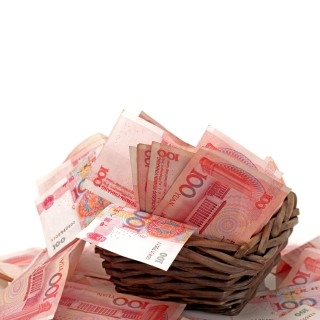
Chinese Yuan depreciation set to continue over the next two years
It is expected to weaken to CNY7.40/USD by end-2018.
The ongoing depreciation in the Chinese yuan against the US dollar has further to go, said BMI Research.
The research house revised its end-2016 forecast to CNY6.85/USD (from CNY6.80/USD previously), while maintaining its end-2017 forecast of CNY7.10/USD.
"The yuan looks technically weak, which is compounded by fundamental headwinds such as a still elevated real effective exchange rate, a slowing economy, and falling real interest rate differentials versus its trading partners," it said.
Here's more from BMI:
The Chinese yuan's depreciation against the US dollar has gathered pace since early October, and the unit has already broken the support at CNY6.83/USD, which was the peg that the People's Bank of China (PBoC) held from July 2008 to June 2010. In our view, the CNY's bear market has much further to go.
The CNY is not only looking technically weak, but fundamentally, it is still strong in real effective exchange rate (REER) terms. It is therefore still vulnerable to capital outflows as real interest rate differentials move against the currency amid an economy that is still under downside pressure and rising US bond yields. We are therefore revising our end-2016 forecast to CNY6.85/USD, from CNY6.80/USD previously.
Long-Term Outlook (six-to-24 months)
The Chinese yuan faces myriad depreciatory pressures over the coming years, informing our forecasts for the currency to weaken gradually to CNY7.10/USD by end-2017 and CNY7.40/USD by end-2018. The Chinese economy remains mired in a medium-term slowdown as structural weaknesses are yet to be fully addressed. These include the dominance of inefficient state-owned enterprises, overcapacity in the industrial sector (such as coal and steel), and rising corporate leverage. They have not improved significantly, and in the case of the latter, it has deteriorated.
In addition, the residential property market still poses a major risk to the Chinese economy and the currency, and we expect the deceleration of property sales to weigh on real estate investment and housing-related retail sales over the coming months property bubble, particularly in Tier-1 and major Tier-2 cities, Chinese local governments have tightened home purchase restrictions in more than 20 cities, and they are starting to weigh on property sales.
























 Advertise
Advertise






